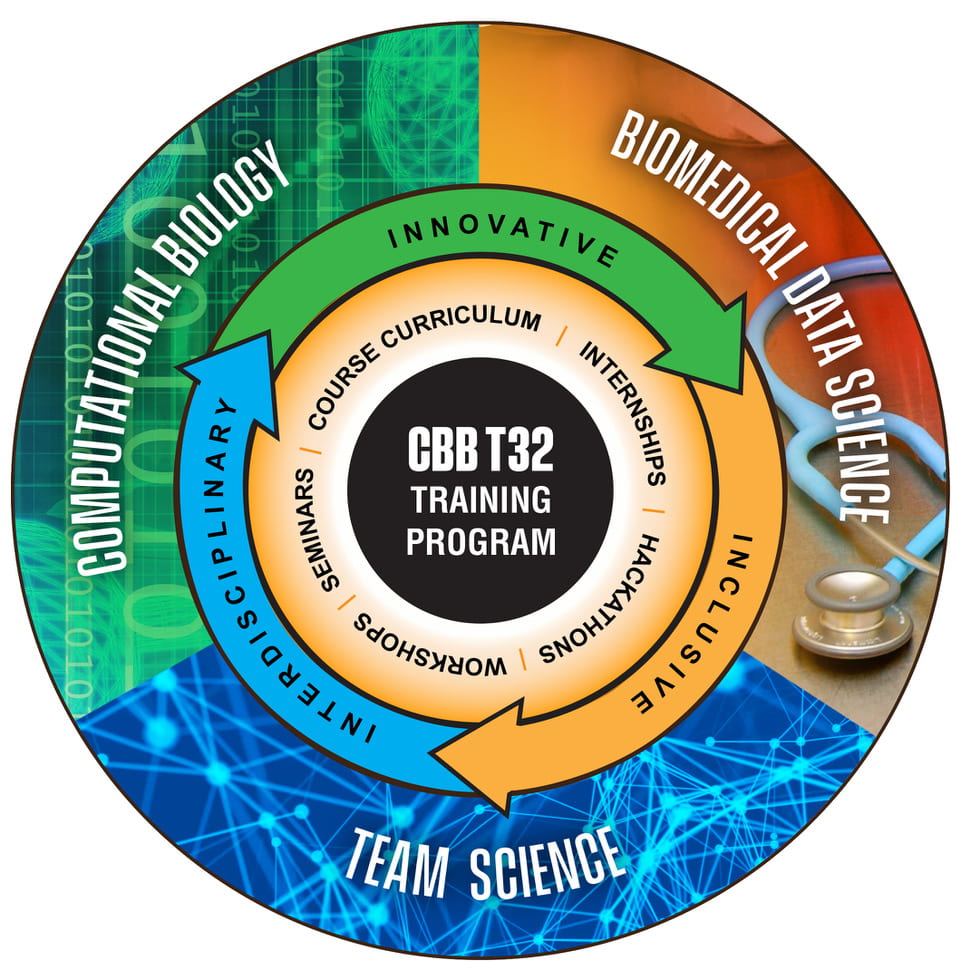
The University of Delaware has been awarded a NIH NIGMS Predoctoral Institutional Research Training Grant (T32) (#T32-GM142603) for Computational Biology, Bioinformatics, and Biomedical Data Science (CBB). The program will feature:
- multidisciplinary research training integrating biomedical and computational sciences
- a cross-campus initiative integrating students across scientific disciplines, and leveraging research infrastructure at the Center for Bioinformatics and Computational Biology and the Data Science Institute
- team science environment with evidence-based, reproducible, and responsible research conduct to ensure scientific rigor
- workforce development for diverse career aspirations with societal impact
The CBB program brings together 30 program faculty with different career stages from ten departments at the University of Delaware, and affiliates from Delaware State University. The trainees will be co-mentored by faculty with vibrant research and complementary expertise in thematic research areas, employing mathematical, computational, and data science approaches for multi-scale systems-level understanding of biological networks, from molecular sequence and structure to cellular function, physiology, and interaction with environments.
Six trainees will be recruited annually from eligible second year PhD students for one-year T32 funding support, coupling with a recruitment strategy using university funds to support bringing the strongest predoctoral candidates to campus thereby providing transformative training for a total of 30 trainees during the 5-year period.
The curriculum will encompass scientific training for technical competency and professional training to develop leadership and teamwork. Trainees will complete four core courses covering topics of quantitative/computational methods, technology, experimental design, and data interpretation, with individualized program of study and individual development plan. A three course CBB Development Core will cover responsible conduct, reproducibility, and ethics using a team-based experiential learning course emphasizing teamwork, communication, and innovation. Year 2 will culminate in a 10-week summer internship designed in collaboration with external academia, industry, government partners. All trainees, faculty mentors, and our partners will form the CBB community and engage in weekly seminars, workshops, annual symposia, hackathons, and other team-building events.
An organizational structure with executive, program, and advisory committees will enhance oversight. Collectively, this T32 will form a collaborative team science infrastructure for transformative workforce development.
